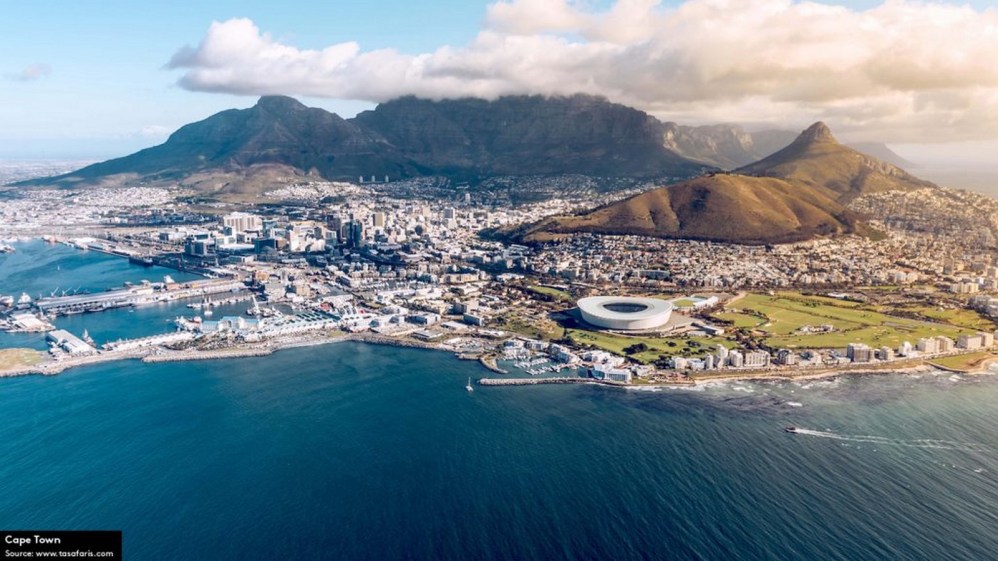Introduction
As the world becomes increasingly urbanized, cities face the challenge of accommodating the rapid growth of populations while ensuring efficient and sustainable urban living. In this context, Smart cities are redefining the concept of urban living, embracing cutting-edge technologies to address the challenges of rapid urbanization, resource constraints, and environmental sustainability. By integrating technology into various facets of urban infrastructure and services, smart cities are revolutionizing the way we live, work, and interact with our environment. This article explores how technology is being integrated into urban infrastructure and services, shaping the smart cities of today and tomorrow.
The Concept of Smart Cities
A smart city is an urban area that leverages technology and data-driven solutions to optimize its operations and improve the quality of life for its residents. It involves integrating various components such as communication networks, sensors, data analytics, and intelligent systems into the existing infrastructure to create a more connected and efficient city.

Infrastructure Transformation
- Smart Transportation: Intelligent transportation systems are central to the concept of smart cities. This involves implementing smart traffic management systems, and intelligent public transportation networks, and using real-time data to optimize traffic flow, reduce congestion, and enhance public safety. A prime example of this is Singapore’s Intelligent Transport System (ITS). Singapore’s ITS utilizes a network of sensors, cameras, and data analytics to manage traffic flow in real-time. The system optimizes traffic signal timings, redirects traffic during congestion, and provides real-time updates to commuters via mobile apps. Consequently, Singapore has successfully reduced traffic congestion, curbed carbon emissions, and significantly improved commuting experiences for its citizens.
-

image showing the transportation system in Singapore © (Roorkee, 2021) Energy Management: Smart cities employ advanced energy management systems to optimize energy consumption, reduce waste, and promote sustainability. These systems encompass smart grids, energy-efficient buildings, and renewable energy sources, enabling cities to lower their carbon footprint and enhance overall energy efficiency. A prime example is Masdar City’s Renewable Energy Initiatives in Abu Dhabi, UAE. Masdar City serves as a groundbreaking carbon-neutral urban development, utilizing solar panels to generate renewable energy and implementing innovative building designs to minimize energy consumption. Its smart grid technology ensures optimal energy distribution and storage, making Masdar City a model for sustainable smart cities worldwide.
-

image showing aerial view of Abu Dhabi’s ambitious eco-city © TODD ANTONY Waste Management: Technology plays a vital role in revolutionizing waste management processes. Smart waste management systems utilize sensors, data analytics, and automation to optimize waste collection routes, monitor waste levels in bins, and promote recycling, leading to cleaner and more sustainable cities. A remarkable example is Seoul’s Waste-to-Energy Plant in South Korea. By transforming waste disposal into a sustainable energy solution, Seoul’s WTE plant incinerates non-recyclable waste to generate electricity and heat for the city. This approach has not only reduced landfill usage but has also mitigated environmental pollution, contributing to a more circular economy.
-

image showing Back to a Future Seoul: Restored Cheonggyecheon Stream runs across the city. (© Seoul Metropolitan Government) Water Management: In light of increasing water scarcity, smart cities are adopting advanced water management systems. These include smart metering to monitor water consumption, real-time leak detection, and water quality monitoring to ensure efficient usage and conservation of this precious resource. An exemplary case is Cape Town’s Water Demand Management initiative in South Africa. In response to a severe water crisis, the city deployed smart water meters to monitor usage and detect leaks in real-time. By empowering citizens with personalized water usage data, Cape Town successfully averted a “Day Zero” scenario and became a global model for water-stressed cities.

Enhancing Urban Services
- E-governance: The concept of e-governance is at the forefront of smart cities’ efforts to provide governance that is both efficient and transparent, thanks to the use of technology. Online portals, digital platforms, and mobile applications enable citizens to access services, participate in decision-making, and communicate with authorities, enhancing citizen engagement and streamlining administrative processes.
- Public safety: The use of technology in public safety has proven to be effective by providing real-time monitoring, predictive analytics, and intelligent surveillance systems to enhance public safety. Smart cities integrate sensors, video analytics, and emergency response systems to enhance disaster management, crime prevention, and public safety infrastructure.
- Healthcare: With technology-driven healthcare systems, the access, quality, and efficiency of healthcare services can be improved significantly. Smart cities deploy telemedicine, electronic health records, and wearable devices to monitor health conditions, enable remote consultations, and improve emergency response, ensuring better healthcare outcomes for residents.
- Education: Smart cities leverage technology to transform education by providing e-learning platforms, digital libraries, and interactive classrooms. These initiatives enhance accessibility, foster lifelong learning, and equip citizens with the skills required for the future job market.
Conclusion
The future of urban living is being shaped by smart cities, which are using technology to integrate infrastructure and services to create spaces that are both sustainable and efficient, as well as livable. By leveraging data, connectivity, and advanced systems, cities can enhance transportation, energy management, waste management, and water conservation. Furthermore, technology-driven solutions improve urban services, including governance, public safety, healthcare, and education. As technology continues to evolve, smart cities will become even more innovative and transformative, shaping the cities of tomorrow for the benefit of their residents and the planet as a whole.
Image sources
01_ArchDaily. (n.d.). Gallery of Cities as Living Laboratories: The Smart City Projects of Amsterdam, Singapore, and Barcelona – 5. [online] Available at: https://www.archdaily.com/1001628/cities-as-living-laboratories-the-smart-city-projects-of-amsterdam-singapore-and-barcelona/6471f52b20e8d3017c9d296d-cities-as-living-laboratories-the-smart-city-projects-of-amsterdam-singapore-and-barcelona-image [Accessed 23 Jul. 2023].
02_Roorkee, C.E.C.I. (2021). SINGAPORE’S TRANSPORTATION SYSTEM. [online] Medium. Available at: https://cec-iitr.medium.com/singapores-transportation-system-4a414caf7b34.
03_Kingsley, P. (n.d.). Masdar: the shifting goalposts of Abu Dhabi’s ambitious eco-city. [online] Wired UK. Available at: https://www.wired.co.uk/article/reality-hits-masdar.
04_Kang, M. (2020). How is Seoul, Korea transforming into a smart city? [online] blogs.worldbank.org. Available at: https://blogs.worldbank.org/sustainablecities/how-seoul-korea-transforming-smart-city.
05_Outside Insight. (2018). Smart cities Africa: Cape Town and Nairobi take the lead. [online] Available at: https://outsideinsight.com/insights/smart-cities-africa-cape-town-and-nairobi-take-the-lead/.




















